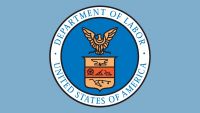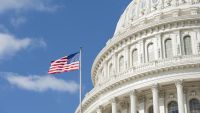Regulation Reality
When the Democrats regained control of both the House and Senate, it was no surprise that the political landscape in Washington changed drastically. However, that change is coming at a price. The Bush Administration has refrained from regulating during its time in office, which has prompted the Democrats in Congress to pay even more attention to worker safety. Since little regulating has been done during the last seven and one-half years, Democrats see this as a perfect opportunity to move the agenda forward on workers safety. The President and, subsequently, his administration are in a lame duck period now, leaving them less vulnerable to fall out from their base, should they choose to put forth regulations. Therefore, the prospect of issuing new regulations is a new reality. This is a scary prospect for mason contractors and the construction industry as a whole, who are constantly faced with providing adequate safety and health procedures to their workers without putting a financial strain on their businesseses. Mason contractors face challenges from the Occupational Safety and Health Administration (OSHA) on a daily basis, and adding another layer of regulation would simply be over-burdensome.
Members of Congress in both the House and Senate have introduced numerous pieces of legislation regarding OSHA and its practices. One piece of legislation, introduced by Education and Labor Committee Chairman Miller (D-Calif.) earlier in the year, would increase enforcement and penalties, and would potentially place more of the onus on employers. In addition to standalone legislation being put forth by lawmakers, specific language was also placed into the appropriations bills, which would have dealt with the issue of Personal Protective Equipment (PPE). Furthermore, because of the recent tragedies in the mining industry, Congress has begun to focus much more attention on safety practices in that industry. This may spill over into OSHA and the manner in which they regulate industries such as construction. The Democrats are using oversight hearings to pressure officials at OSHA, which may result in a more concentrated focus on worker safety in the closing months of the administration.
As recently as Sept. 24, the House was set to take action mandating that OSHA issue an interim final rule, and then a final regulation on workplace exposure to diacetyl, the butter flavoring ingredient frequently used in microwave popcorn. Subsequently, the same day OSHA announced it would begin making a rule and taking other steps to protect workers from inhaling the chemical. It is important to note that Congress has the oversight authority to mandate the agency to act. However, the legislation not only would have mandated the agency to take action, but also would have allowed Congress to write the terms of the rule, which is of grave concern to employers, especially in our industry.
The legislation dealing with diacetyl is setting the tone for the future. It is concerning to the Mason Contractors Association that legislation of this nature was even considered by Congress. Even more concerning, the legislation passed with bi-partisan support, 47 House Republicans supported the legislations passage. The bill would have established a precedent for regulating without the necessary science and data that would be completely at odds with all other laws, judicial decisions, executive orders and sound policy considerations under which OSHA currently operates.
This bill mandated that OSHA issue an interim final regulation within 90 days of enactment, and a final regulation that would include a Permissible Exposure Limit (PEL), within two years of enactment. Unfortunately, the science surrounding exposure to diacetyl is nowhere near sufficient to support determining where to set a PEL.
The very NIOSH document cited in the bill for the recommendations that are to be enshrined in the OSHA regulation also states: "Little is currently known about which chemicals used in flavorings have the potential to cause lung disease and other health effects, and what workplace exposure concentrations are safe. ... Most chemicals used in flavorings have not been tested for respiratory toxicity via the inhalation route, and occupational exposure limits have been established for only a relatively small number of these chemicals" (NIOSH Publication 2004-110).
Even more important, the bill would have completely trampled on an array of carefully developed, balanced and necessary requirements and rulemaking safeguards that have been put in place to assure OSHA standards reflect the best science available, are responsive to a specific hazard, and are both technologically and economically feasible for the affected employers. Both Congress and the Supreme Court have made clear that OSHA can only regulate after it has satisfied specific requirements for data and analysis.
Finally, OSHA's regulatory actions are subject to the rulemaking requirements of the Occupational Safety and Health Act and the Administrative Procedures Act. Certainly, the interim final regulation specified by this bill would not have been produced under such procedures, and the accelerated time frame for the final regulation would make satisfying these requirements extremely difficult.
The landscape in Washington had already dramatically changed, but that change is about to become even greater. We are likely to see many more pieces of legislation dealing with OSHA and its practices. In addition, more focus will be placed on employers and the practices used to protect workers. In an April 2007 letter to members of the House, Education and Labor Committee Chairman Miller (D-CA) said, "An important part of federal action to protect workers is new and stronger legislation."
Until the recent flurry in Washington, workers had turned to the legal system to solve disputes with employers. Since there is a new sheriff in town, that is all about to change. Democrats in Congress will be sure they take any action necessary to do what they deem best for America's workers, no matter the cost to employers. Mason contractors want nothing more than to protect their workers from safety hazards. While the legislation put forth by lawmakers is unquestionably well intentioned, we can't sacrifice the value of sound science and appropriate stakeholder input.
It is important that mason contractors and employers across the country keep their eyes out for new legislation and, subsequently, various new regulations to be issued in the next 18 months.
About the Author
Jessica Johnson Bennett was the Director of Government Affairs for MCAA. She has an extensive background in public affairs and government relations. Her expertise in strategic planning, PAC management and operations help on key policy issues.


















